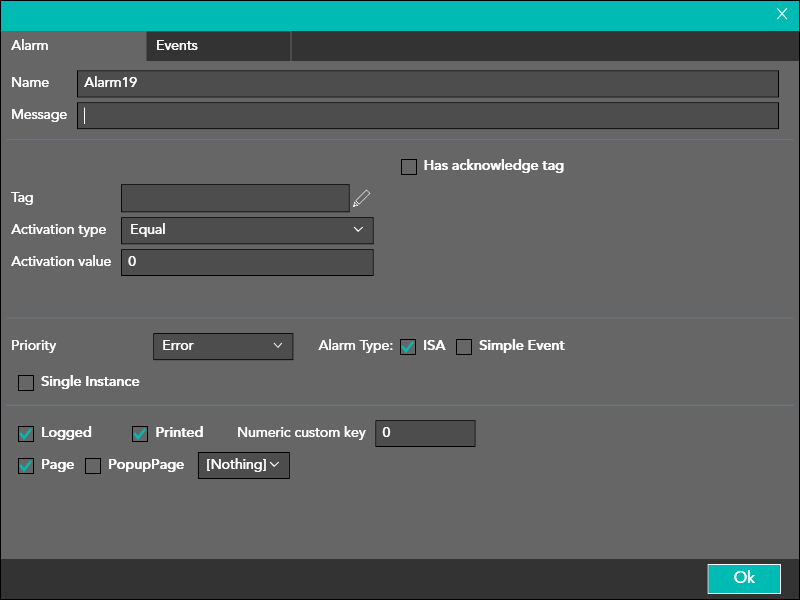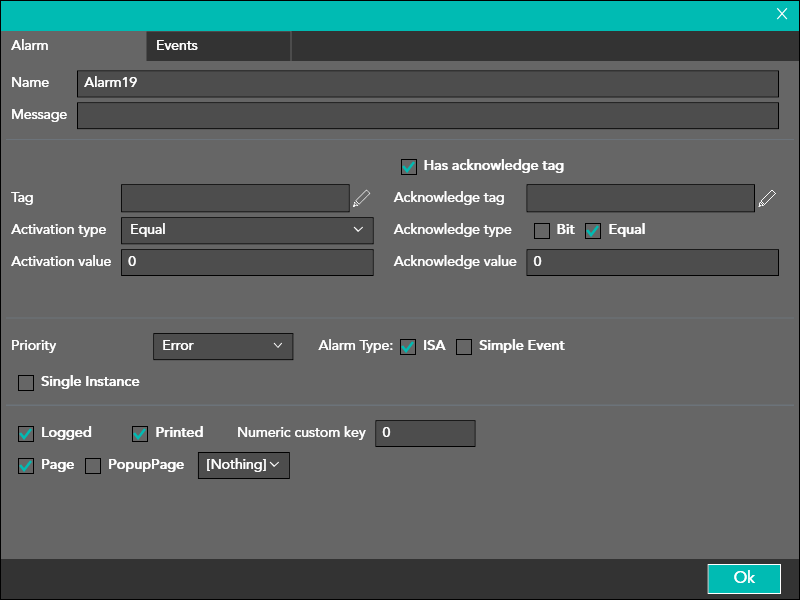Alarm definition
By clicking on the icon add an alarm in the alarm table it is possible to insert a new alarm.

Name
Enter the name of the alarm you want to program.
Message
The message that will be displayed in the active alarms view and in the alarm history
Acknowledge Tag

It allows to manage the acknowledgment of the alarm through PLC tags both bitwise (in case the alarm is programmed on the value of the single bit of a tag) and value.
This functionality is useful if there are multiple panels connected to a single PLC and you want to propagate the recognition made by one of the panels to the others on the network.
Tag
Select the Tag on which the alarm is mapped.
Activation Type
Define the type of alarm activation.
-
BIT: the alarm is raised when the bit reaches the TRUE value and is considered terminated when the bit reaches the FALSE value.
-
ACTIVATION VALUE: indicates the bit number inside the tag (from 0 to 15 if the tag is an INTEGER)
-
NEGATIVE LOGIC: inverts the bit value corresponding to true (value 0) and FALSE (value 1)
-
EQUAL: the alarm is raised when the tag assumes the value defined in the Activation value.
-
DIFFERENT FROM: the alarm is raised when the tag value is different from that defined in the Activation Value
-
BIGGER THAN: the alarm is raised when the tag value is greater than that defined in the Activation Value
-
LESS THAN: the alarm is raised when the tag value is lower than that defined in the Activation Value
-
IN THE RANGE: the alarm is raised when the tag value is within the range of values defined by Minimum Range and Maximum Range. The alarm is lowered when the tag value is out of range
-
OUT OF RANGE: the alarm is raised when the tag value is outside the range of values defined by Minimum range and Maximum range
Priority
Allows you to select the alarm priority by selecting between Error and Warning.
Alarm Type
Select between ISA alarm and Simple event
Uniqe instance
With this selection the user can force that only one instance of the alarm is created even if it is activated several times.
Registered
The alarm must be saved in the historical buffer
The alarm can be printed
Custom key
It allows you to define a unique alarm ID to be used in functions or scripts
Pop_up page
Allows you to define a page to associate with the specific alarm.
Normally the page that is associated is the alarm help page
Events
Alarm events